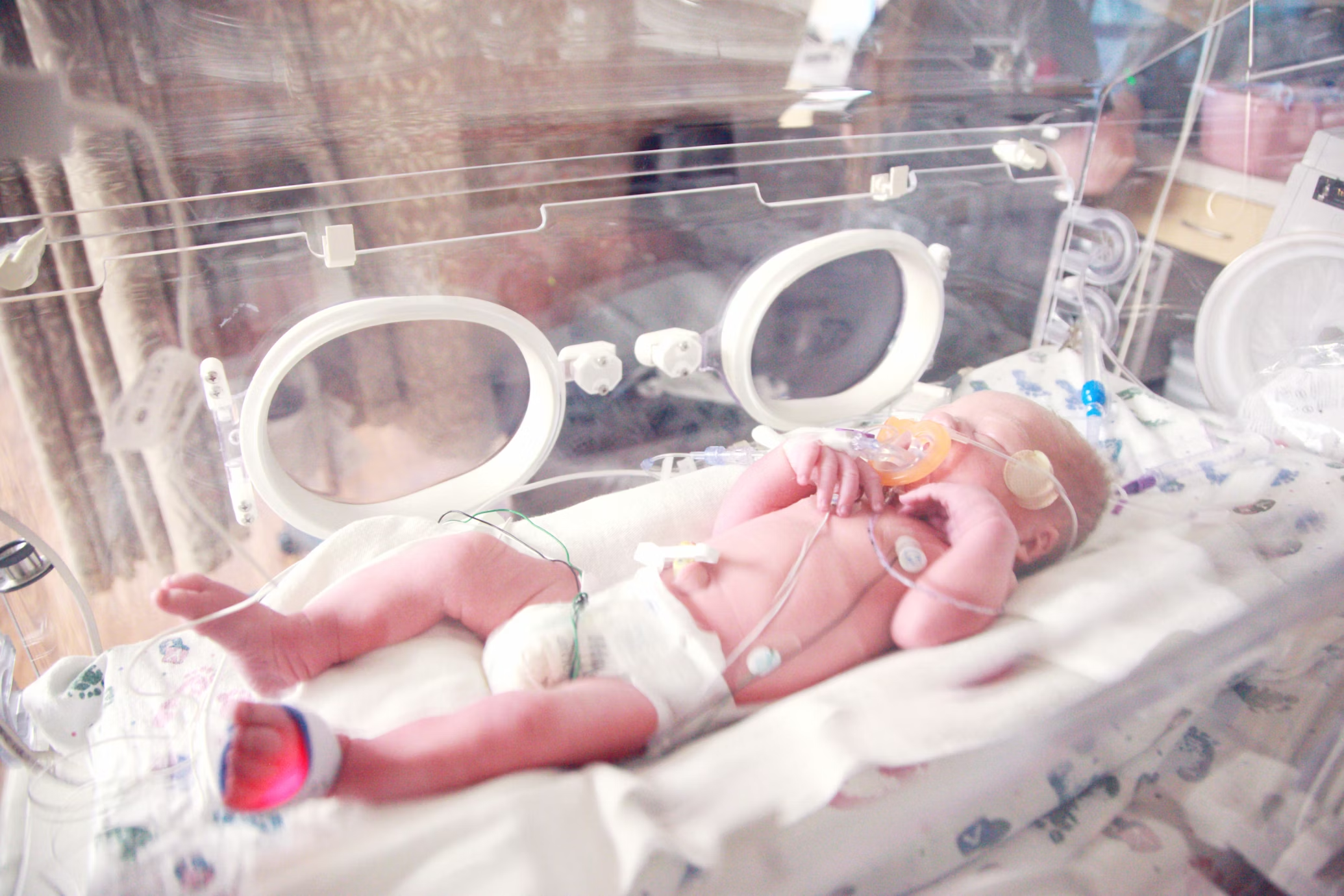The triumph of a premature birth can quickly turn into a fight for survival when a newborn develops necrotizing enterocolitis (NEC). This devastating intestinal disease primarily affects preemies and can lead to surgery, long hospital stays, and lasting health concerns.
While many babies overcome the initial hurdle of NEC, the battle for their well-being often extends far beyond the NICU walls. In this article, we’ll explore the long-term effects of NEC and the ongoing challenges faced by children who have beaten this early obstacle.
Intestinal Issues
One of the most significant long-term effects of NEC is damage to the intestines. This damage can take the form of strictures (narrowing) or even shortened segments (short bowel syndrome). Strictures can cause difficulty passing stool and absorbing nutrients properly, leading to malnutrition and growth failure.
In fact, a study published by the NIH notes that 9-36% of NEC survivors experience intestinal strictures, highlighting the prevalence of this complication. Left untreated, these strictures can necessitate additional surgeries to widen the passage for proper digestion.
Developmental Delays
The impact of NEC goes beyond the digestive system. Research suggests a link between NEC and neurodevelopmental delays. These delays can affect a child’s motor skills, cognitive development, speech, and language.
According to ScienceDirect, studies have shown that babies who develop NEC are likely to experience learning difficulties in the future. Early intervention and specialized educational programs can significantly improve outcomes for children with NEC-related developmental delays.
Seeking Support and Legal Avenues
The emotional and financial toll of a child’s NEC diagnosis can be immense. Parents navigating this challenging journey may require various forms of support. Support groups connect families with others facing similar experiences, offering emotional comfort and shared knowledge.
The NEC Society, one such patient advocacy group, offers comprehensive resources and support for families of NEC survivors. This includes connecting them with specialists and providing information on navigating the long-term needs of their child.
Additionally, legal avenues may be explored if medical negligence is suspected to have contributed to the development of NEC. TorHoerman Law states that consulting with an attorney specializing in medical malpractice can help families understand their options and seek compensation.
According to a recent NEC lawsuit update from June 2024, there are a total of 514 lawsuits pending in the litigation. The Lawsuit Information Center notes that 18 of these claims were filed between April and May of this year.
This recent surge in lawsuits highlights concerns about potential contributing factors. These lawsuits allege that some formula manufacturers may not have adequately warned about the risks of NEC associated with certain cow-based baby formulas.
If a parent that a specific formula may have contributed to their child’s NEC diagnosis, seeking legal counsel can be a valuable first step. This can help them navigate the complexities of the situation and potentially hold negligent parties accountable.
Lifelong Management
For many NEC survivors, managing their digestive health becomes a lifelong necessity. This can involve dietary modifications, medication, and potential future surgeries.
HealthyChildren.org notes that some children who developed NEC as an infant may also struggle with short bowel syndrome later in life. Regular follow-up with a gastroenterologist is crucial to monitor growth and optimize a child’s overall well-being. Depending on the severity of the intestinal damage, some children with NEC may require specialized feeding tubes to ensure they receive proper nutrition.
Research and Resilience
Despite the challenges, there is hope for the future of NEC survivors. Ongoing research is exploring potential causes and preventative measures for NEC. Additionally, advancements in surgical techniques and nutritional support are improving outcomes for affected babies.
With continued support, medical advancements, and the resilience of these tiny warriors, the long-term effects of NEC can be managed. This allows children to thrive and reach their full potential. Research efforts are also focusing on developing new treatments to minimize the need for surgery and improve the long-term gut health of NEC survivors.
Also Read: The Benefits of Using Smart Square HMH in Your Healthcare Organization
FAQs
What happens in NEC?
NEC causes inflammation and damage to the intestines of premature babies. This can cause tissue death and holes to form, leading to infection and potentially requiring surgery.
Does NEC cause lifelong problems?
Yes, NEC can cause lifelong problems. Strictures (narrowing) or shortened intestines can lead to malnutrition, developmental delays, and require ongoing dietary management.
What causes intestinal strictures?
Intestinal strictures can be caused by inflammation and scarring from various conditions, including NEC. The damaged tissue heals by forming scar tissue, which can narrow the passage and hinder digestion.
In conclusion, NEC’s grip on a child’s well-being extends far beyond the initial crisis. While lasting health challenges exist, hope emerges through continuous research and advancements.
With unwavering support, medical progress, and a child’s unwavering spirit, the long-term effects of NEC can be navigated, allowing them to thrive.





